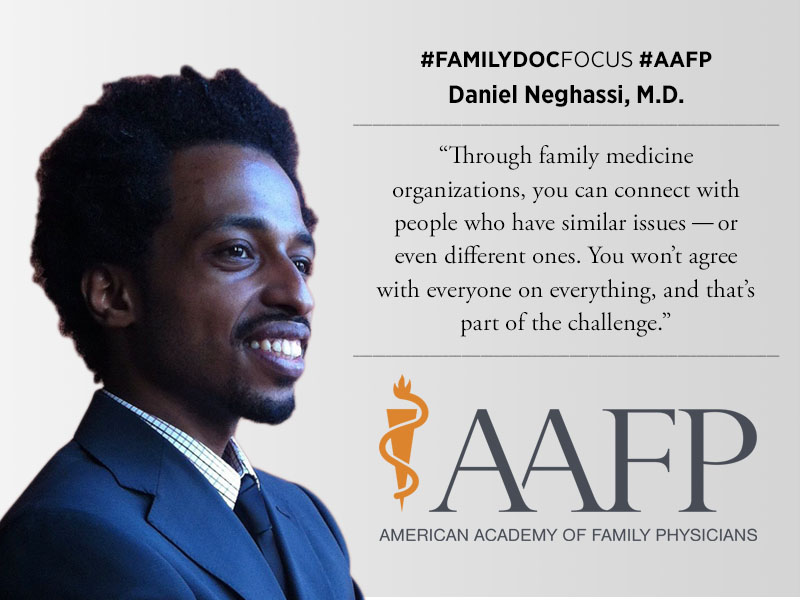NYC Doc Making Connections, Change Through Advocacy Work
February 22, 2021, 12:51 pm David Mitchell — As a medical student in New York, Daniel Neghassi, M.D., experienced some of his earliest patient interactions in a church basement, volunteering at a free clinic for people coping with housing insecurity in Harlem. More than a decade later, he’s still there.

“It’s been a great experience,” said Neghassi, who volunteers weekly at the student-run Columbia-Harlem Homeless Medical Partnership. “I’ve been involved as medical student, resident and now as an attending. It’s been insightful to provide care in a low-resource setting where not everything you need is at our disposal. We talk to patients and hear their stories. There’s a lot of counseling, building relationships and trust. It’s a powerful lesson for students.”
Neghassi also works with students weekly at his alma mater, teaching first- and second-year students at the Columbia University Vagelos College of Physicians & Surgeons in a seminar that covers topics such as social determinants of health, bias in health care delivery and health policy.
Although Neghassi shares his passion for health equity with students, it’s not something he has to inspire in them.
“Students bring their own passion,” said Neghassi, who also cares for patients who are uninsured, as well as Medicaid and Medicare beneficiaries, at a federally qualified health center in Yonkers. “More and more students, and society in general, are becoming aware about these issues. If you provide primary care, it’s easy to be aware of the systemic issues we have. Think about what patients go through. So much of their health is not determined by their choices but by their living situations and day-to-day experiences — their social determinants of health. These things impact patients’ health more than anything we can do in a 15-minute visit.”
Neghassi hopes to improve health care by being an advocate for patients and family medicine. He is the board chair of the New York State AFP and co-convener of the minority constituency for the AAFP’s National Conference of Constituency Leaders.
“If we want to have broader impact, working on larger issues becomes so important,” said Neghassi, who also is an advisory board member for the New York Metro chapter of Physicians for a National Health Program. “Doing it collectively is more effective, which is why I get involved in these things.”
Neghassi said young physicians have “a natural cohort of people going through similar things” during residency, but he felt a stark difference after completing his training and looked for new places to make connections.
“Through family medicine organizations, you can connect with people who have similar issues — or even different ones,” he said. “You won’t agree with everyone on everything, and that’s part of the challenge.”
NCCL gives AAFP members from underrepresented constituencies (minorities; women; international medical graduates; new physicians; and lesbian, gay, bisexual and transgender physicians and those who support LGBT issues) opportunities to develop leadership skills and to influence AAFP policy. The virtual event is scheduled for April 29-May 1.
Neghassi served as a chapter delegate at previous NCCLs. In his role as constituency co-convener, he will help facilitate discussions “about issues we face in our practice of medicine and in our communities” and guide constituency delegates through the process of “writing and presenting resolutions to reference committees in a way that is convincing and productive.”
He also will serve as a constituency delegate during the Congress of Delegates, the Academy’s policy-making body, in September.
“It’s an opportunity to testify on the same issues on a larger scale and urge the Academy to take a stand on issues that are important to our constituency,” said Neghassi, who was an alternate delegate last year. “That’s been a really rewarding experience.”
Neghassi said his state chapter initially encouraged him to get involved with NCCL. His experience with that event gave him the confidence to take on leadership roles in his chapter, he said.
“It takes a lot of time and energy,” he said, “but I’m happy to have taken part in it. I’ve learned a lot.”